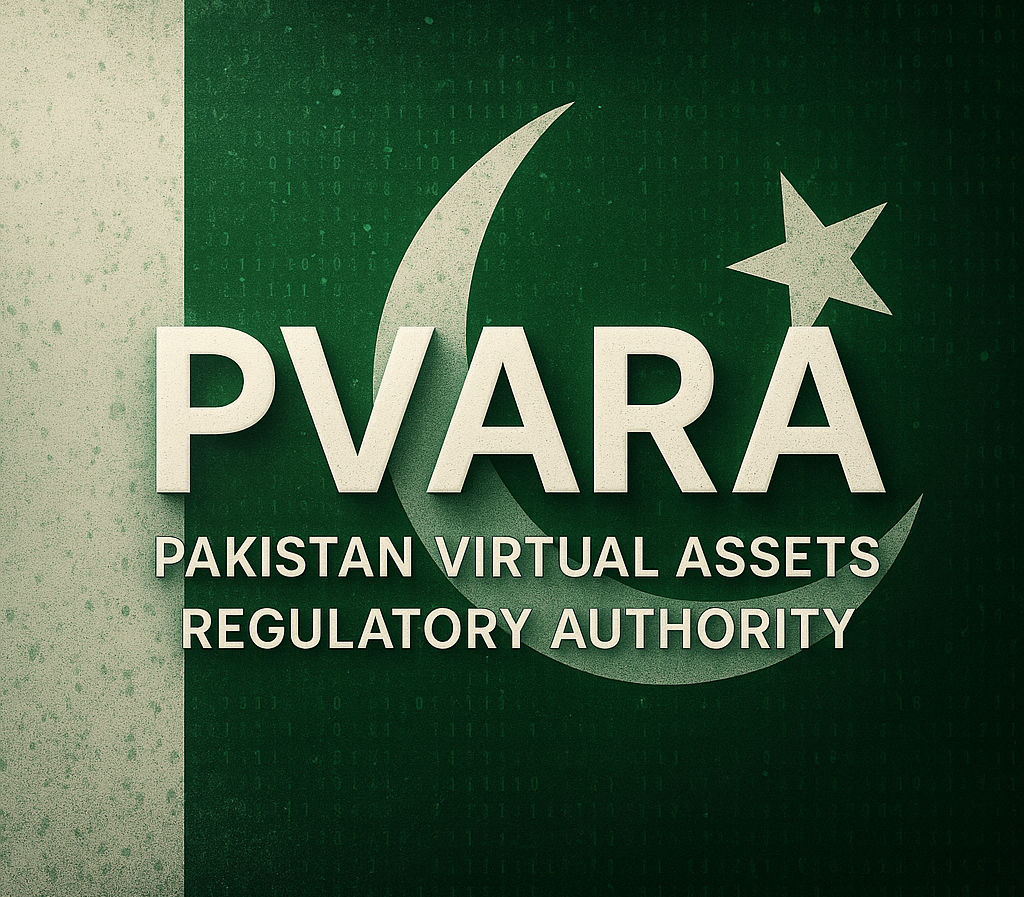Pakistan Forms PVARA: A Step Toward Digital Innovation or Global Compliance?
Pakistan has launched the Virtual Assets Regulatory Authority (PVARA) to regulate and license crypto service providers, aligning with FATF and IMF guidelines, marking a major step in the country’s digital finance journey.

In a major development for the country’s digital financial landscape, the Government of Pakistan has formally announced the creation of the Pakistan Virtual Assets Regulatory Authority (PVARA) — a new independent regulator tasked with licensing, monitoring, and supervising Virtual Asset Service Providers (VASPs). This move is being hailed as a turning point in Pakistan’s journey toward embracing digital assets while aligning with international financial frameworks.
According to a statement released by the Ministry of Finance, the newly-formed authority is intended to bring Pakistan in compliance with the guidelines of the Financial Action Task Force (FATF), the International Monetary Fund (IMF), and the World Bank. The government aims to strike a balance between fostering innovation and ensuring responsible regulation of the fast-growing virtual asset ecosystem.
“The cabinet’s approval is a critical inflexion point in this journey,” the finance ministry stated. “Once legislated, the authority will be responsible for issuing licences, supervising VASPs, setting technical standards, and coordinating compliance with FATF, IMF, and World Bank guidelines.”
Regulatory Leap or Cautious Compliance?
The move comes at a time when global scrutiny of crypto and digital assets is at an all-time high. Countries are increasingly being held accountable for how they regulate virtual assets, especially with FATF’s Recommendation 15 urging jurisdictions to implement risk-based approaches to prevent money laundering and terror financing through cryptocurrencies.
Pakistan’s digital finance scene has long needed a structured regulatory body to mitigate risks and boost investor confidence. However, questions remain about whether this is a genuine push for innovation or a calculated response to pressure from international financial watchdogs such as FATF and the IMF.
While the official language emphasizes innovation and public protection, the subtext suggests that this move may be part of a broader negotiation to remain in the good books of global financial institutions. Pakistan has previously faced challenges in exiting the FATF grey list and is currently under the radar of institutions like the IMF as part of ongoing fiscal reform packages.
Big Names, Bigger Ambitions
Interestingly, Pakistan’s virtual asset journey has included engagement with prominent figures from the global crypto industry. In the past, reports have surfaced suggesting that Changpeng Zhao (CZ), EX CEO of Binance, and Michael Saylor, Chairman of MicroStrategy, were brought on as strategic advisors to help shape the country's digital asset policy. While the extent of their involvement remains somewhat unclear, the signal is strong — Pakistan wants to position itself as a serious player in the global digital economy.
What’s Next?
The establishment of PVARA opens several doors:
- Licensing Framework: Clear guidelines for exchanges, wallet providers, and tokenization platforms.
- Investor Protection: Better transparency and risk mitigation for local and international users.
- Blockchain Growth: A possible boom in blockchain-based startups and fintech services.
- Global Integration: Alignment with FATF and other global watchdogs could help attract foreign investment and technological partnerships.
Yet, it remains to be seen how much operational independence the authority will have — and whether it will encourage innovation or impose restrictive oversight.
The creation of PVARA is a milestone in Pakistan’s fintech and blockchain journey, offering the promise of regulatory clarity and innovation. However, its success will depend on whether the government can balance external compliance pressures with internal economic goals.
For a country that’s often on the sidelines of technological revolutions, this may be Pakistan’s opportunity to step forward — but only time will tell whether this is the dawn of digital innovation or just another checkbox on an IMF report.




